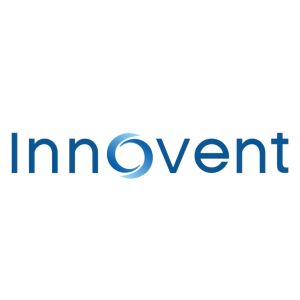Innovent Announces a Phase 3 Study of Picankibart (Anti-IL-23p19 Antibody) Completes First Participant Dosing, Exploring Biologics Switching Treatment for Psoriasis Patients with Prior Inadequate Response to Anti-IL-17 Antibodies
Rhea-AI Summary
Positive
- Phase 2 results showed strong efficacy with 64.6% of participants achieving skin lesion clearance
- Maintenance dosing showed durable response through week 44 (54.2% response rate)
- First IL-23p19 monoclonal antibody independently developed by a Chinese biopharma
- New drug application already submitted to NMPA in September 2024
Negative
- None.
News Market Reaction – IVBIY
On the day this news was published, IVBIY gained 30.48%, reflecting a significant positive market reaction.
Data tracked by StockTitan Argus on the day of publication.
This study (NCT06945107) is a multi-center, randomized, double-blind, active-controlled Phase 3 clinical study to evaluate the efficacy and safety of switching to picankibart in plaque psoriasis patients with inadequate response to prior anti-IL-17 monoclonal antibody treatment (sPGA score of ≥ 2 and body surface area [BSA] of ≥
The results of a Phase 2 study (NCT05970978) showed that switching from other biologics (primarily IL-17 monoclonal antibodies) to picankibart led to a rapid clinical response. The observed efficacy in skin lesion clearance and significant improvements on the quality of life suggest picankibart may possess a best-in-class profile among agents with the same target.
- Nearly half (
48.2% , 40/83) of the participants with inadequate response to prior biologics treatment reached the primary endpoint, i.e., sPGA 0 or 1 and BSA <3% , and the response rate remained stable (54.2% , 45/83) through week 44 with continued picankibart maintenance treatment dosing every 12 weeks. - The majority (
64.6% , 42/65) of the participants with baseline sPGA ≥ 2 and BSA ≥3% achieved sPGA of 0 or 1, and16.9% (11/65) of the participants achieved complete skin lesion clearance, i.e., sPGA of 0. The DLQI of the participants was also improved.
Professor Furen Zhang, the Principal Investigator of the Clinical Study, Dermatology Hospital Affiliated to Shandong First Medical University, stated, "Psoriasis is a chronic condition that significantly affects patients' physical and mental well-being and quality of life. At present, biological agents have emerged as cornerstone systemic therapies for psoriasis, particularly IL-17 monoclonal antibodies due to their efficacy in patients with moderate-to-severe psoriasis. Nonetheless, treatment failure remains a significant clinical challenge. A real-world study showed that
Professor Jun Gu, the Principal Investigator of the Clinical Study, Suzhou Municipal Hospital, stated, "Although the IL-17 monoclonal antibody has shown significant efficacy for the treatment of psoriasis, there are still patients who will discontinue treatment due to poor efficacy or safety issues. A study on the biologics switching for psoriasis implied that the switching between biologics with different targets may provide better efficacy to patients2, but rigorous clinical research evidence remain essential to validate this therapeutic approach. Extensive clinical data have demonstrated the therapeutic benefits of picankibart in psoriasis treatment. This randomized controlled Phase 3 study addresses a critical unmet need by evaluating picankibart as an alternative treatment for patients with inadequate response to IL-17 inhibitors. It aims to transform treatment failures into new starting points for optimized treatment pathways, providing scientific evidence for clinical decision-making, while also offering new hope of maintaining quality of life for patients who have experienced treatment setbacks."
Dr. Lei Qian from Innovent Biologics, stated, "With the wide application of biological agents, the failure of biological agents has gradually become an important clinical problem, which needs to be solved urgently. A completed Phase 2 single-arm study suggested that in patients with inadequate response to previous treatment with other biologics (mainly anti-IL-17 antibodies), up to
About Psoriasis
Psoriasis is a chronic, recurrent, inflammatory and systemic disease induced by genetic and environmental factors, affecting individuals of all ages and genders. It typically presents as scaly erythema or plaques, with non-infections, localized or widespread distribution. As a life-long noninfectious condition, psoriasis is notoriously difficult to treat. The disease can be categorized into psoriasis vulgaris (including guttate psoriasis and plaque psoriasis), pustular psoriasis, erythrodermic psoriasis and arthropathic psoriasis. Approximately
About Picankibart (IBI112)
Picankibart (IBI112) is a monoclonal antibody independently developed by Innovent with proprietary intellectual property rights. This product specifically targets the IL-23p19 subunit, preventing IL-23 from binding to cell surface receptors. Picankibart has the potential to offer a more effective treatment option for patients with psoriasis, ulcerative colitis or other autoimmune diseases.
Currently, multiple clinical studies of picankibart are underway, including:
- Phase 3 study conducted in patients with moderate-to-severe plaque psoriasis (CLEAR-1), which has reached the study endpoints in May 2024;
- Phase 3 study conducted in patients with moderate-to-severe plaque psoriasis with randomized withdrawal and re-treatment;
- Phase 3 study in patients with moderate-to-severe plaque psoriasis who were previously treated with biologics;
- Phase 2 study in patients with moderate-to-severe active ulcerative colitis;
In September 2024, the NMPA accepted the first NDA for picankibart for the treatment of moderate-to-severe plaque psoriasis.
About Innovent
Innovent is a leading biopharmaceutical company founded in 2011 with the mission to empower patients worldwide with affordable, high-quality biopharmaceuticals. The company discovers, develops, manufactures and commercializes innovative medicines that target some of the most intractable diseases. Its pioneering therapies treat cancer, cardiovascular and metabolic, autoimmune and eye diseases. Innovent has launched 15 products in the market. It has 3 new drug applications under regulatory review, 4 assets in Phase III or pivotal clinical trials and 15 more molecules in early clinical stage. Innovent partners with over 30 global healthcare companies, including Eli Lilly, Sanofi, Incyte, Adimab, LG Chem and MD Anderson Cancer Center.
Guided by the motto, "Start with Integrity, Succeed through Action," Innovent maintains the highest standard of industry practices and works collaboratively to advance the biopharmaceutical industry so that first-rate pharmaceutical drugs can become widely accessible. For more information, visit www.innoventbio.com, or follow Innovent on Facebook and LinkedIn.
Statement: |
(1)Innovent does not recommend the use of any unapproved drug (s)/indication (s). |
(2)Ramucirumab (Cyramza) and Selpercatinib (Retsevmo) and Pirtobrutinib (Jaypirca) were developed by Eli Lilly and Company. |
Forward-Looking Statement
This news release may contain certain forward-looking statements that are, by their nature, subject to significant risks and uncertainties. The words "anticipate", "believe", "estimate", "expect", "intend" and similar expressions, as they relate to Innovent, are intended to identify certain of such forward-looking statements. Innovent does not intend to update these forward-looking statements regularly.
These forward-looking statements are based on the existing beliefs, assumptions, expectations, estimates, projections and understandings of the management of Innovent with respect to future events at the time these statements are made. These statements are not a guarantee of future developments and are subject to risks, uncertainties and other factors, some of which are beyond Innovent's control and are difficult to predict. Consequently, actual results may differ materially from information contained in the forward-looking statements as a result of future changes or developments in our business, Innovent's competitive environment and political, economic, legal and social conditions.
Innovent, the Directors and the employees of Innovent assume (a) no obligation to correct or update the forward-looking statements contained in this site; and (b) no liability in the event that any of the forward-looking statements does not materialize or turn out to be incorrect.
REFERENCES:
1. Gulliver SR, Gulliver W. Investigation of prevalence of biologic use and discontinuation rates in moderate-to-severe psoriasis patients in
2. Tsai YC, Tsai TF. Switching biologics in psoriasis - practical guidance and evidence to support. Expert Rev Clin Pharmacol. 2020;13(5):493-503.







